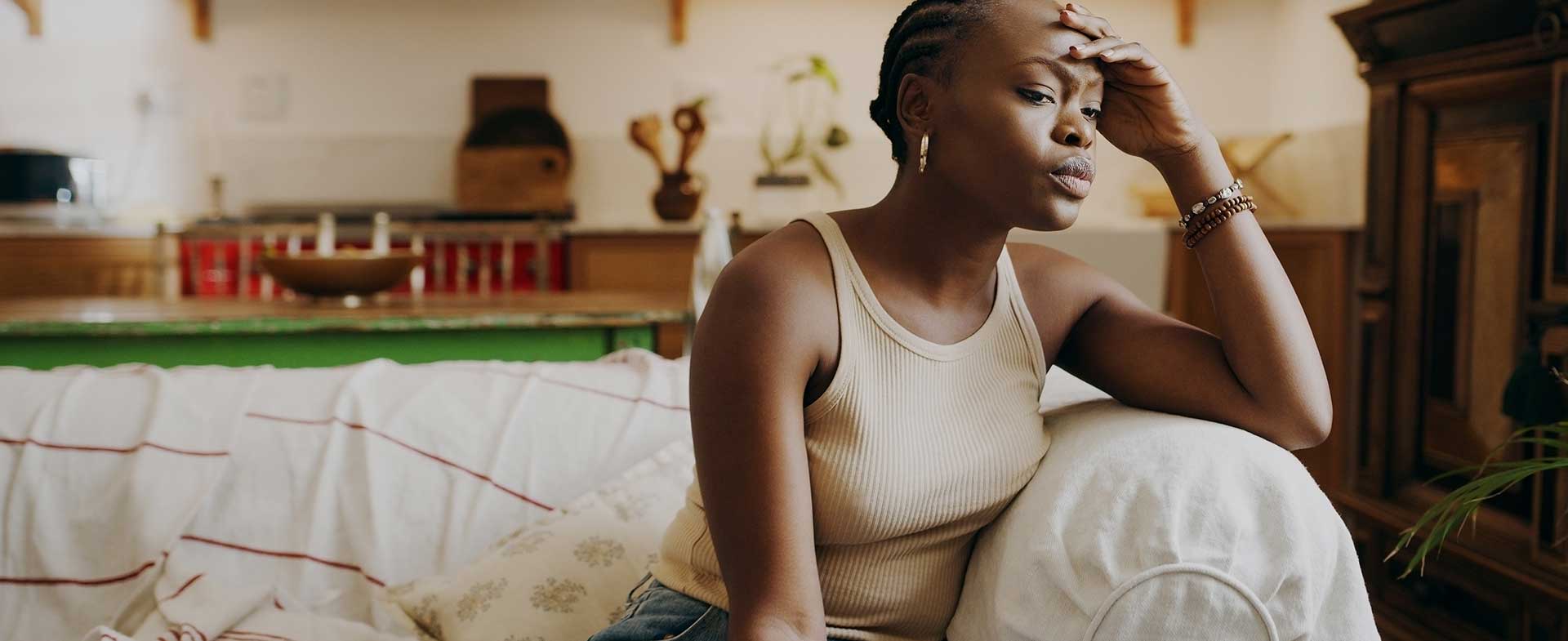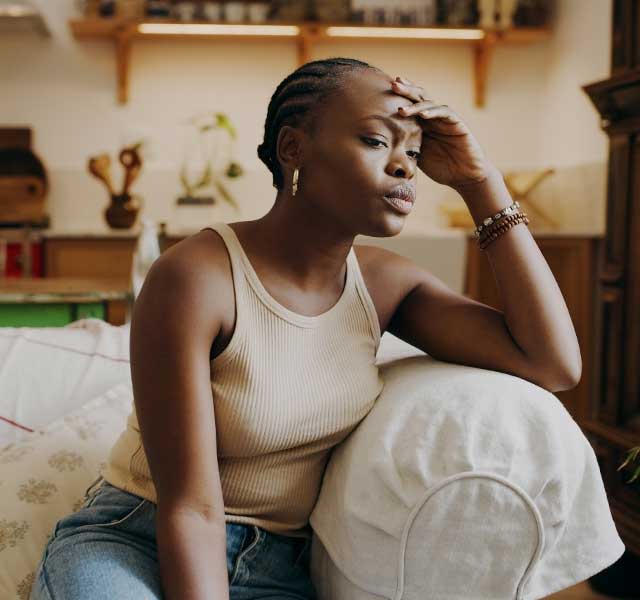The symptoms of depression are wide ranging, but some might think the most well-known symptoms, which include feelings of hopelessness and a depressed mood, are the only symptoms.
This may leave people - particularly those of color - without a diagnosis, as most of the studies concerning symptoms of depression have been conducted in white people.
But recent research shows depression in Black women is more likely to manifest in symptoms like fatigue, insomnia, decreased sex drive, self-hate and self-blame, irritability and an inability to experience pleasure. Physical symptoms, rather than mental symptoms, are more likely to be noted in Black women.
The Risk Of Depression In Black Women & Disparities In Treatment
While depression can touch anyone regardless of race, Black people are (reportedly) less likely to develop depression but more likely to develop severe depression than white people. Black people may also have unique factors that contribute to the likelihood of depression. A Henry Ford Health study, for example, found that experiencing racism – especially during childhood and adolescence – may increase someone’s risk for depression.
According to the study, Black women who experienced a high frequency of racism before age 20 had an increased risk for high depressive symptoms compared to women in the low racism frequency group. Among women who experienced high racism before age 20 and after age 20, the risk of high depressive symptoms was higher than those who experienced low racism during both age ranges.

Behavioral Health Services
Yet Black people are less likely than white people to get help, which may also contribute to the severity of illness. For some, enduring a lifetime of microaggressions and racism may condition them to just ‘stick it out.’ Others may have mistrust in the healthcare system or are too busy to make time for themselves. Or they may not have access to healthcare centers of excellence and the resources to get therapy.
For those who do seek help, their symptoms may be overlooked due to implicit bias or stereotypes of the ‘Strong Black Woman,’ which depicts Black women as mentally and physically strong despite stressors or trauma in their lives.
But if a provider dismisses you, turn to another. It’s important to find someone you trust – someone who listens to you and who you can confide in. Oftentimes, primary care doctors can prescribe medication for depression. They may also be able to refer you to a mental health professional for therapy.
Talking to a friend or joining a support group can help, too – you’ll surely find that you’re not alone in how you’re feeling. And sometimes, that’s half of the battle.
Kimberlydawn Wisdom, MD, MS, FACEP, is the Senior Vice President of Community Health & Equity and Chief Wellness & Diversity Officer for Henry Ford Health. Read more about Dr. Wisdom.



